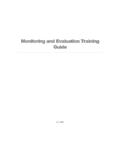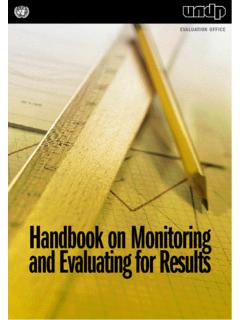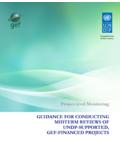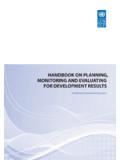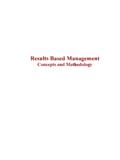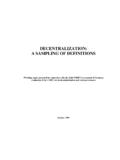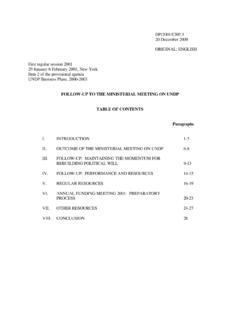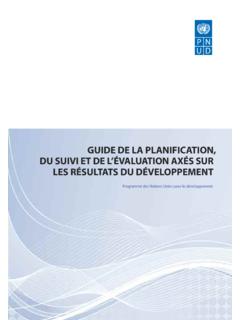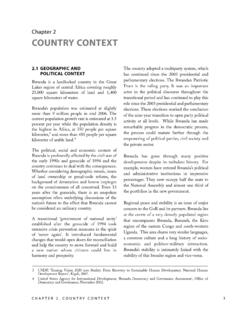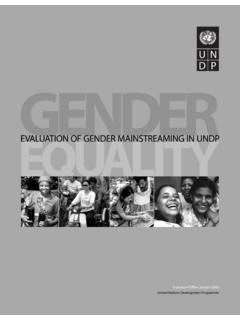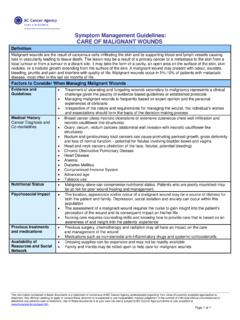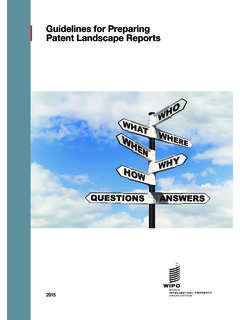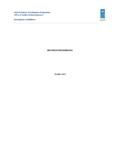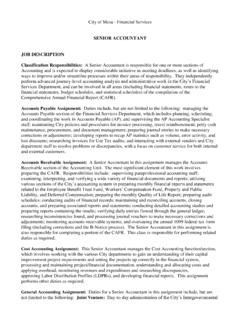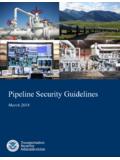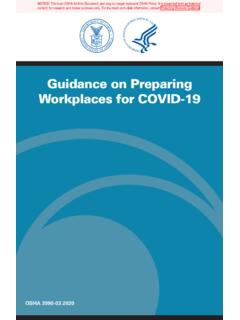Transcription of UNDP EVALUATION GUIDELINES
1 UNDP EVALUATION GUIDELINES Revised edition: June 2021 UNDP EVALUATION GUIDELINES IEO UNDP June 2021 Permission to reproduce any part of this publication is required. Please contact: Suggested citation: UNDP EVALUATION GUIDELINES , Independent EVALUATION Office of UNDP, New York, June 2021. Independent EVALUATION Office United Nations Development Programme One United Nations Plaza, 20th Floor New York, NY 10017, USA Tel. +1 (646) 781-4200 Web: Connect with us: FOREWORD It gives me great pleasure to introduce the UNDP EVALUATION GUIDELINES in collaboration with the UNDP Independent EVALUATION Office. These GUIDELINES reflect the commitment of UNDP to continuous learning and improvement, and they come at an important moment in time.
2 The ambition of the 2030 Agenda and the Sustainable Development Goals demand a different kind of development: where problems and their solutions are connected and integrated, and where incremental change for good is not enough. We are mandated to help our partners find and implement integrated, transformational solutions across the Sustainable Development Goals. As we do this in and across our six signature areas of poverty, governance, environment, resilience, energy and gender, we must learn and adapt with openness, transparency and accountability. Strong evaluations, thoughtfully used, are a fundamental part of that process and will be increasingly central to our work. I would like to commend all those involved in preparing these GUIDELINES , including colleagues across UNDP country, regional and global teams as well as the Independent EVALUATION Office.
3 I encourage you all to read them carefully and put them to work to enhance how we think, deliver, invest and manage as the next generation UNDP. Achim Steiner Administrator UNDP PREFACE It gives me great pleasure to present the 2021 update of the United Nations Development Programme (UNDP) EVALUATION GUIDELINES , to assist all UNDP colleagues involved in any aspect of EVALUATION across the organization. The first UNDP handbook on monitoring and EVALUATION was developed in 1997, and subsequently revised in 2009 and again in 2019. The UNDP EVALUATION GUIDELINES provide clear guidance and direction for those planning and commissioning evaluations, including step-by-step processes , templates and roles and responsibilities.
4 EVALUATION is essential for UNDP, to ensure that the organization remains accountable, transparent and learns from its programme implementation. IEO believes that strong, quality, and credible evaluations are needed to ensure balanced and informed management decision making at all levels including Country, Regional and Headquarters. High quality decentralized evaluations also strengthen the work of the Independent EVALUATION Office (IEO) to provide evaluative evidence. This informs and enriches our Independent Country Programme Evaluations (ICPE) to strengthen new Country Programme Documents (CPDs) , as well as our corporate and thematic evaluations which inform UNDP strategic planning. Recently, IEO has increasingly turned to decentralized EVALUATION to capture lessons across a broad range of thematic areas, informing the COVID-19 response as well as thematic programming.
5 IEO remains committed to support UNDP in strengthening and broadening EVALUATION processes and culture across the organization, and will continue to provide guidance and training to strengthen EVALUATION planning, implementation and production at all levels. The completion of these GUIDELINES was made possible through the collective efforts of the IEO team and UNDP colleagues from headquarters, regional bureaux and country offices who participated in the process in 2019. Their comments, questions and suggestions have been considered and incorporated throughout this update, and will continue to be incorporated in future versions. I urge UNDP management and colleagues at all levels to incorporate these EVALUATION GUIDELINES into their everyday work, to ensure that our evaluations are of high quality and inform our strategic decision making, for the delivery of more inclusive and sustainable development results.
6 Oscar A. Garcia Director, Independent EVALUATION Office, UNDP ACRONYMS BPPS Bureau for Policy and Programme Support CCA Country Common Assessment CPD Country Programme Document CPPS Country Programme Performance Survey D-CPE Decentralized Country Programme EVALUATION DAC Development Assistance Committee EPI EVALUATION performance indicator ERC EVALUATION Resource Center FAQ Frequently asked questions GCF Green Climate Fund GEF Global Environment Facility GPN Global Policy Network ICPE Independent Country Programme EVALUATION IEO Independent EVALUATION Office M&E Monitoring and EVALUATION NEC National EVALUATION capacities OAI Office of Audit and Investigation OECD Organization for Economic Cooperation and Development PAC Programme Appraisal Committee PBF Peacebuilding
7 Fund POPP Programme and operations policies and procedures PPM Project and programme management SDG Sustainable Development Goal SWAP System-wide Action Plan TOR Terms of reference UNCT United Nations country team UNDAF United Nations Development Assistance Framework UNDAP United Nations Development Assistance Partnership UNDP United Nations Development Programme UNEG United Nations EVALUATION Group UNSDCF United Nations Sustainable Development Cooperation Framework INTRODUCTION TO THE UPDATED EVALUATION GUIDELINES Why update the EVALUATION GUIDELINES ? Welcome to the 2021 updated EVALUATION GUIDELINES . The GUIDELINES have been updated to reflect feedback from trainings and interviews, and recent changes in UNDP, bringing them into line with the new UNDP EVALUATION Policy and the United Nations Sustainable Development Cooperation Framework (UNSDCF).
8 The following documents are of particular importance for the UNDP EVALUATION architecture: UNDP, 2019, Revised UNDP EVALUATION The EVALUATION Policy sets out the purpose and basic principles of EVALUATION and defines the institutional architecture of EVALUATION for UNDP and its associated funds and programmes. UNDP, 2020, Social and Environmental The revised Standards underpin the UNDP commitment to mainstream social and environmental sustainability. UNDP, 2018, Gender Equality Strategy The Strategy provides a road map to integrate gender equality into all aspects of UNDP work. UNDP, 2018, Disability Inclusive Development in UNDP. Guidance The Guidance Note incorporates a reflection on UNDP comparative advantage and the diversity and depth of interventions undertaken by UNDP.
9 United Nations EVALUATION Group (UNEG), 2020, Ethical GUIDELINES for This is a revision of the original document published in 2008. UNEG, 2018, Guidance on Evaluating Institutional Gender This practical guide was designed to advocate a common approach to assessing progress of institutional gender mainstreaming in the United Nations system. UNEG, 2016, Norms and Standards for The UNEG Norms and Standards are a foundational document intended for all United Nations EVALUATION bodies. UNEG, 2014, UNEG Integrating Human Rights and Gender Equity in This is an in-depth handbook designed to serve as a field guide. In addition, various UNEG guidelines9 have been introduced or adjusted in recent years.
10 1 Access at: 2 Access at: 3 Access at: 4 Access at: 5 Access at: 6 Access at: 7 Access at: 8 Access at: 9 Access at: United Nations, 2018, System-Wide Policy on Gender Equality and the Empowerment of Women (SWAP) EVALUATION Performance Indicator. Technical SWAP was developed as a means of furthering the goal of gender equality and women s empowerment within policies and programmes. Organization for Economic Cooperation and Development (OECD) Development Assistance Committee (DAC) Network on Development EVALUATION , Better Criteria for Better EVALUATION , 2019, Revised EVALUATION Criteria Definitions and Principles for This update includes adapted definitions of the OECD EVALUATION criteria and reflects new policy priorities, including the 2030 Agenda for Sustainable Development and the Paris Climate Agreement.
